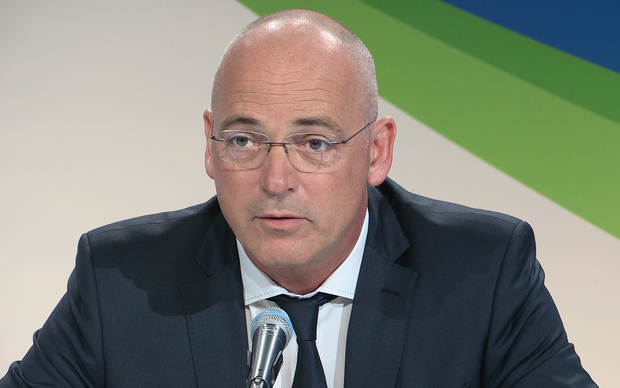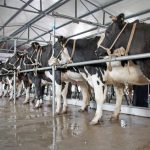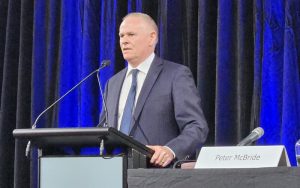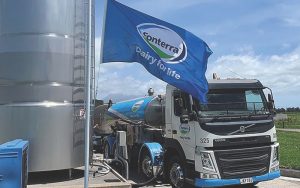
This was revealed as the dairy co-operative forecasts a loss of up to $675 million, and has announced it will not be paying a dividend this financial year.
No one from Fonterra would be interviewed about Mr Spierings’ payout, but a Fonterra statement said he was given the $4.6m when he left the co-op last August.
It said the payment covered the final part of a deferred bonus dating back to 2017 and Mr Spierings’ final remuneration for this year including his base salary, superannuation, and holiday pay.
Mr Spierings’ annual annual salary was $2.5m a year but he earned over $8m for each of the last two years with bonuses.
Regional Economic Development Minister Shane Jones called the amount “offensive” considering the role Mr Spierings played in “bringing our national co-operative to its knees”.
“The fact that the directors signed a contract, enabling him to wander off with such a gross amount of money which he never earned, and we in New Zealand are left with this fiscal carnage. It’s just beyond belief.”
He called the Fonterra board “dysfunctional” and said it seemed incapable of reigning in corporate excess.
“I can tell you today that the Dutchman, the former CEO, is celebrating a famous Dutch saying, ‘It’s as if an angel is peeing on your tongue’. But he’s richly relieved himself on the tongue of Fonterra and the rest of us in New Zealand, not just farmers, are left with the cost.”
Simplicity managing director Sam Stubbs said Mr Spierings should give the money back.
“It would be the honourable thing to do. Of course, there’s a contractual obligation there, which means he probably doesn’t have to. And given that he’s no longer working in New Zealand I wouldn’t expect him to.
“But it would be very nice if he did, given that the decisions he was involved with clearly have, effectively, destroyed so much value over a long period of time.”
Mr Stubbs said the case highlighted a fundamental problem with executive compensation, when someone could receive millions of dollars “at a time when so much farmer value and shareholder value has been lost”.
Agricultural economist Peter Fraser said while Mr Spierings certainly made some big mistakes, Fonterra’s problems couldn’t only be put down to him.
“They seem to blame everything that’s gone wrong, either directly or indirectly, on Theo Spiering.
“Look, Theo’s made some whoppers, but he’s not entirely to blame. Fonterra’s Australian business has been a dog for years. Farmers have complained about it for years because it doesn’t make cost of capital.
“The fact that they have droughts over there and the fact they have had to close down down a plant. That’s not Theo’s fault.”
A Fonterra statement said the incentives scheme which gave Mr Spierings his bonuses has been discontinued.






















